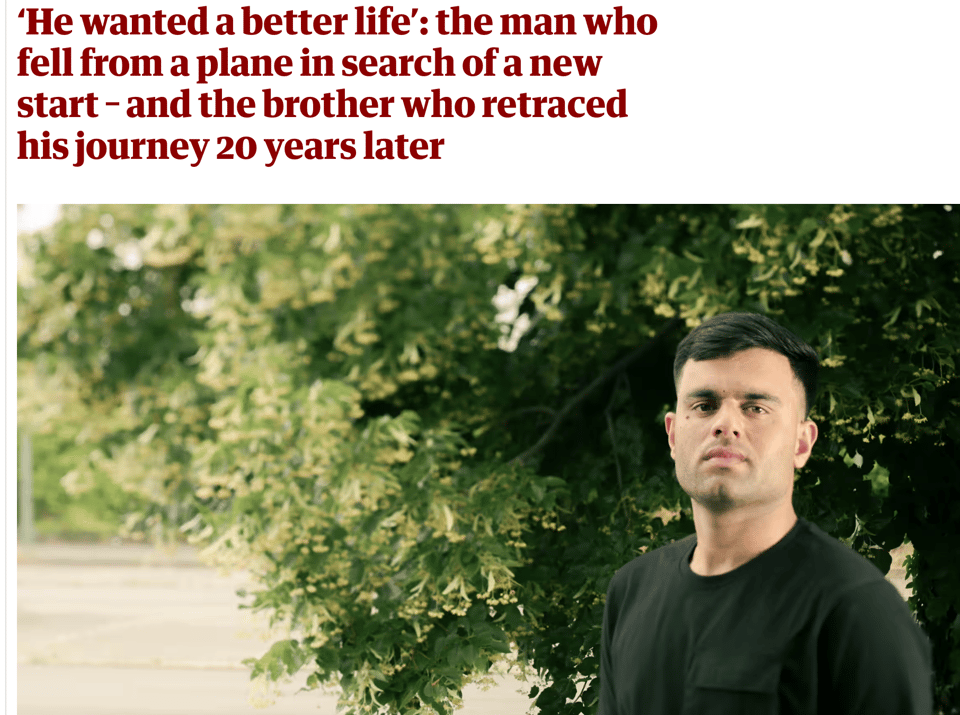#14 Twenty-three years later...

In 2001 I read an article in the Guardian about a man who fell to earth. The body of an airplane stowaway, Muhammad Ayaz, was discovered in a supermarket carpark in West London, not far from where I live. He’d fallen from the British Airways plane as it made its descent into Heathrow.
A myth circulates that there is a secret passageway from the landing gear of an airplane into the luggage hold. No such passageway exists and most people who attempt to stowaway in this manner are either crushed by the enormous wheels, frozen to death as the plane reaches altitude, or they fall out when the wheels are lowered as the plane comes into land. The journalists who wrote the story - Esther Addley and Rory McCarthy - worked with the Metropolitan Police to track down this man's family. Muhammad Ayaz had grown up in the Swat Valley in Pakistan and at the age of 21 was hoping travel to the UK in search of a better life, as a way to make money to support his family back home.
This story haunted me for a number of years and, over the following decade, I went on to create two projects where I tried to imagine what might provoke someone to make this journey and what might happen if they survived - because, incredibly, people do survive these journeys. Flight Paths is a digital story in episodes I created with web artist Chris Joseph; Landing Gear is a novel that takes that story and expands it.
Several months ago, out of the blue, I had an email from Esther Addley. She’d remembered my interest in the story and thought I’d want to know that Muhammad Ayaz's youngest brother, Khalil Ullah, just one year old when Muhammad died, is studying for a master's in physiotherapy at an English University. In the two decades since their brother’s death, Khalil and his remaining eight siblings have built successful lives in Pakistan, the Gulf, and the US.
Last autumn, Khalil flew into Heathrow himself for the first time. Esther and Sue Hill, the now-retired Metropolitan Police officer in charge of the investigation back in 2001, planned to meet with the young man and take him to the car park where his brother's body was found. That meeting has now taken place.

There are so many things that are amazing about this story that I don't know where to start - read Esther’s beautifully written article for yourself, or listen to the podcast she recorded for the Guardian's Today in Focus. I hope to meet Khalil myself sometime this autumn.
To me this story is proof that although the sacrifices made are unimaginably painful, families can lift themselves from poverty. As Khalil says to Esther, he is his brother's happy ending.